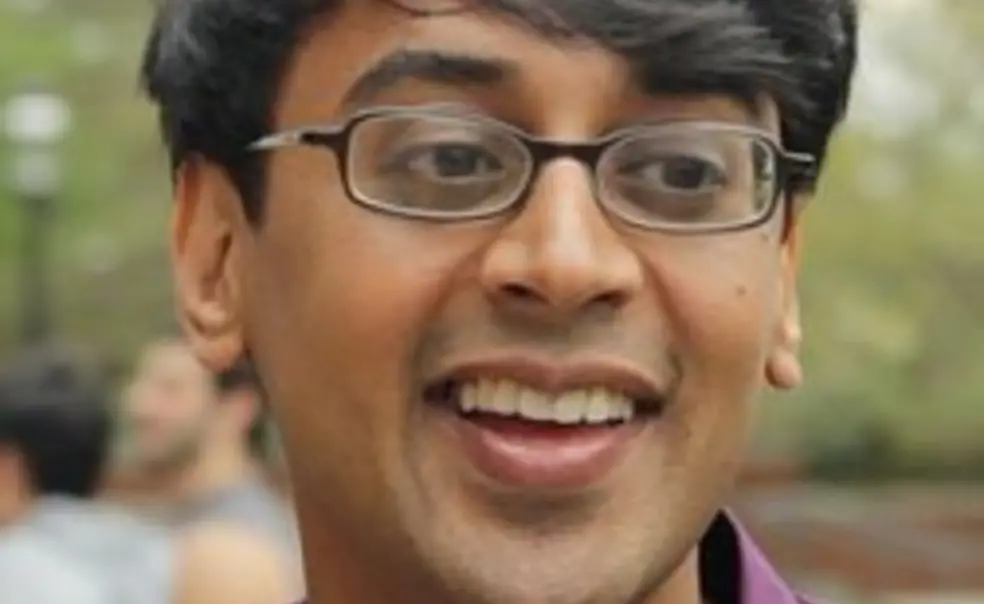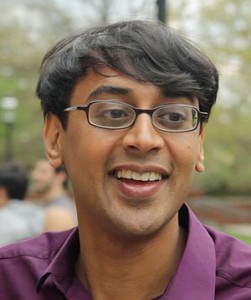Tiger of the Week: Fields Medal Recipient Manjul Bhargava *01
High-level math is not all fun and games, but for alumnus and Princeton professor Manjul Bhargava *01, games can be an important part. Bhargava, one of four mathematicians to receive the Fields Medal last week, has used games to help visualize problems. He explained one notable example in an interview with New Scientist:
“Gauss’ law [of composition] says that you can compose two quadratic forms, which you can think of as a square of numbers, to get a third square. I was in California in the summer of 1998, and I had a 2 x 2 x 2 mini Rubik’s Cube. I was just visualizing putting numbers on each of the corners, and I saw these binary quadratic forms coming out, three of them. I just sat down and wrote out the relations between them. It was a great day!”
Bhargava teaches a freshman seminar called “The Mathematics of Magic Tricks and Games,” which uses card tricks and the like to dig into meaty math topics such as number theory, topology, and cryptography. But his interests don’t end with groundbreaking math and clever magic: He also plays the tabla, a traditional Indian drum, and enjoys rhythmic Sanskrit poetry, according to a Quanta Magazine profile.
Bhargava is the eighth Princeton mathematician to receive the Fields Medal, presented every four years to influential researchers under age 40. His fellow 2014 honorees included the first woman to win the award, Maryam Mirzakhani of Stanford University, who taught at Princeton from 2004 to 2010.
READ MORE: Bhargava’s thoughts on the intersection of music, poetry, and mathematics, from a 2010 PAW story.













No responses yet